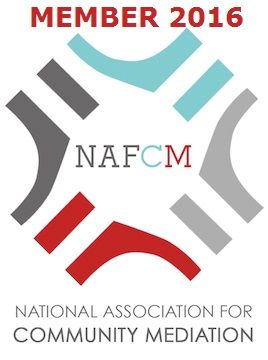Many situations can be mediated and The Resolution Center is available to assist with developing:
-
Parenting Plan Mediation provides parents with an opportunity to develop a mutually agreed upon plan on how to parent their children from two homes. Topics discussed when developing a parenting plan include:
» Parenting time schedule
» Physical custody
» Legal custody and decision making
» School breaks
» Vacations
» Holidays and birthdays
» Telephone contact
» Communication
» Activities
» Extended familyTo learn more about parenting plans, view this video http://www.youtube.com/watch?v=R1yATMTDGs4
_______________ -
Divorce Mediation can address property division, payment obligations, and a process for future decisions. It also allows you to make your own decision by reducing conflict and minimizing stress. Mediation makes sure the interest of both parties are met and encourages creative solutions.
_______________ -
Elder Mediation provides a forum for family decision-making by hearing the concerns of the elder adult and allowing siblings to discuss the needs of their parent(s), and how to share in those responsibilities. Mediation can help families discuss the division of labor, management of finances, and living arrangements, and allow families to create a mutually agreeable solution to address the situation.
_______________ -
Employment Mediation is a valuable tool enabling employees within an organization to resolve their disputes while maintaining the working relationship. Workplace conflict mediation promotes:
» Trust
» A fair and respectful workplace
» Good working relationships
» An improved work environment
» A positive public image
_______________ -
Special Education Mediation is a process that is facilitated by a trained mediator that is voluntary and confidential, and promotes respectful and constructive communication between a parent(s), school personnel, and possibly other support persons. Each side is given the opportunity to explain the situation from their perspective, while the other side listens. A list of issues is developed and addressed one at time. Solutions to each issue are explored by the parties. When solutions have been found that are satisfactory to both parties, an agreement is written.
What types of special education issues can be mediated?
» Disagreements concerning the identification, evaluation, educational placement, or provision of the free appropriate public education of learners with disabilities.
» Communication problems among interested parties.
» Strained relationships between family and the school district and assessment or trust issues.How much does it cost?
The Nebraska Department of Education has contracted with The Resolution Center to provide all services at no cost to the parties.Who can request mediation and when?
Mediation is your right. It can be requested by anyone with a special education situation at any time. Either school districts or families can request mediation by calling The Resolution Center. Referrals can be made by friends, teachers, administrators, attorneys, school board members, and others.Who are the mediators?
The mediators are trained and experienced professionals who are meet the requirements of the Center and the Nebraska Office of Dispute Resolution. Mediators are impartial, neutral, and unbiased; they do not make any decisions for the parties. Mediators do not provide legal advice. Mediators are not part of the Nebraska Department of Education.What will the mediators know about special education?
Mediators are experts in helping people discuss problems constructively. The mediators are specifically trained to mediate special education situations; however, they are not experts in special education. If specific expertise is needed, the mediators will explore with you what options might be available to bring that expertise to the discussion.What if I don't like the agreement?
There will not be an agreement unless you voluntarily accept it. Parties have a responsibility to express themselves during the mediation session. The mediators are skilled at managing dynamics and helping people discern what they need. Agreements are reached through a powerful process, with numerous steps to assure all the parties are in fact satisfied that their issues and interests have been met. Those who agree to mediate have a very high probability of finding resolution.How will mediation help us?
Mediation gives all participants an opportunity to solve their problems by developing an agreement with reflects the best educational interests of the child. I fan agreement is not reached, you can still request a due process hearing or try mediation at another time.
_______________ -
Small Claims Mediation allows the plaintiff and defendant an opportunity to try and resolve their dispute rather than having the judge decide for them. The process allows both parties to share their perspective, talk about what is important, and negotiate an agreement. When both parties are part of developing the solution, it is more likely that the parties will follow through with the agreement.
What is the cost?
There is no cost to the parties to mediate a small claims. This is a free service that is provided to the courts.What happens if we can't agree?
The case will continue through the court process. The judge will hear the case and decide the outcome of the case.What happens to the case if we agree?
The mediator will record the agreement. It is then reviewed and signed by each party, and The Resolution Center will submit the agreement to the court. Generally, parties do not need to go before the judge if an agreement is reached.Why should I mediate?
Through mediation parties maintain control over their outcome, and they have flexibility in defining the solution that works for them.
Where is the mediation held?There are a few options:
1. At a site in the same town as the courthouse and possibly at the courthouse
2. In a town that is convenient for the parties
3. By telephone or video conference





